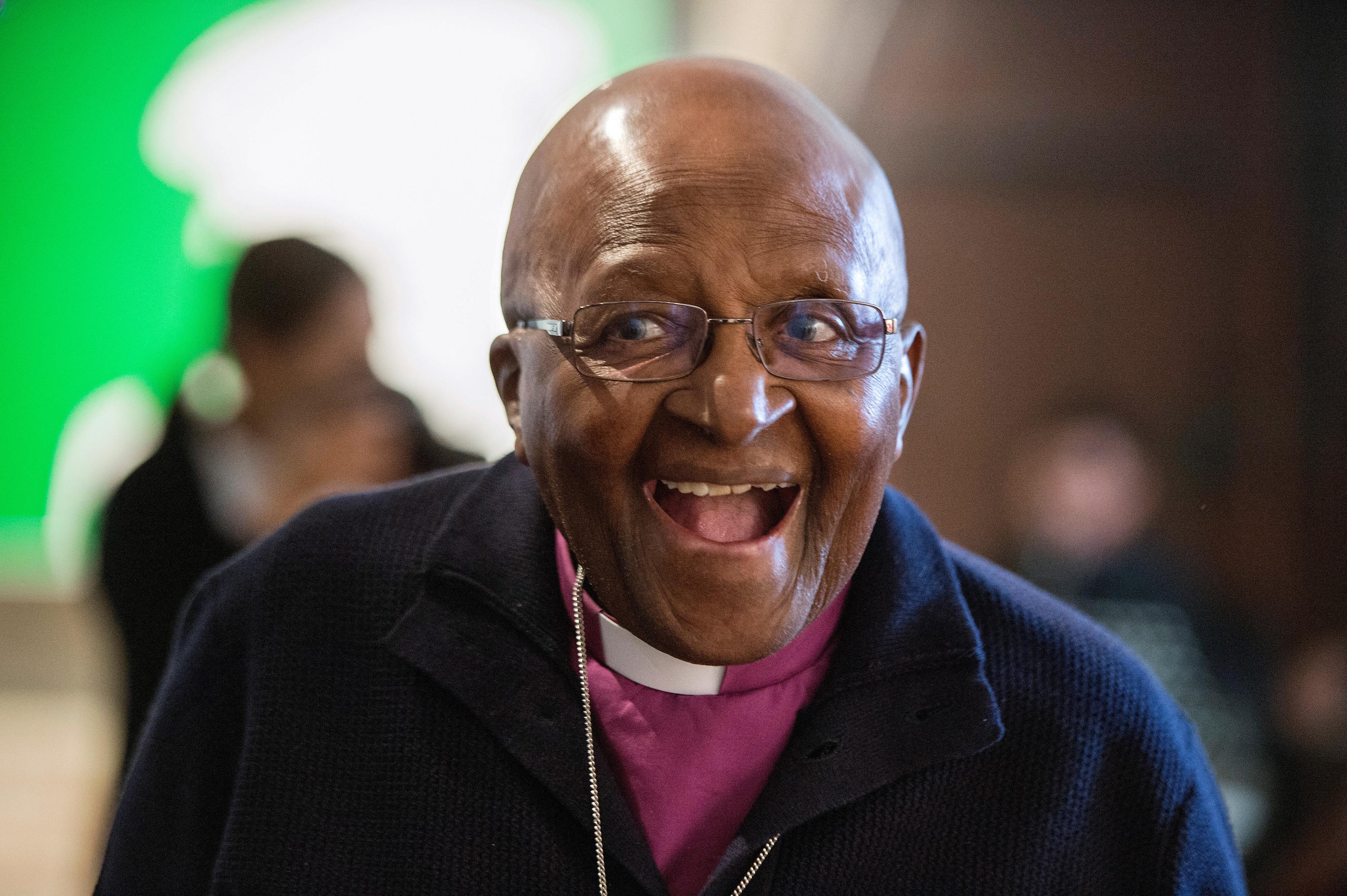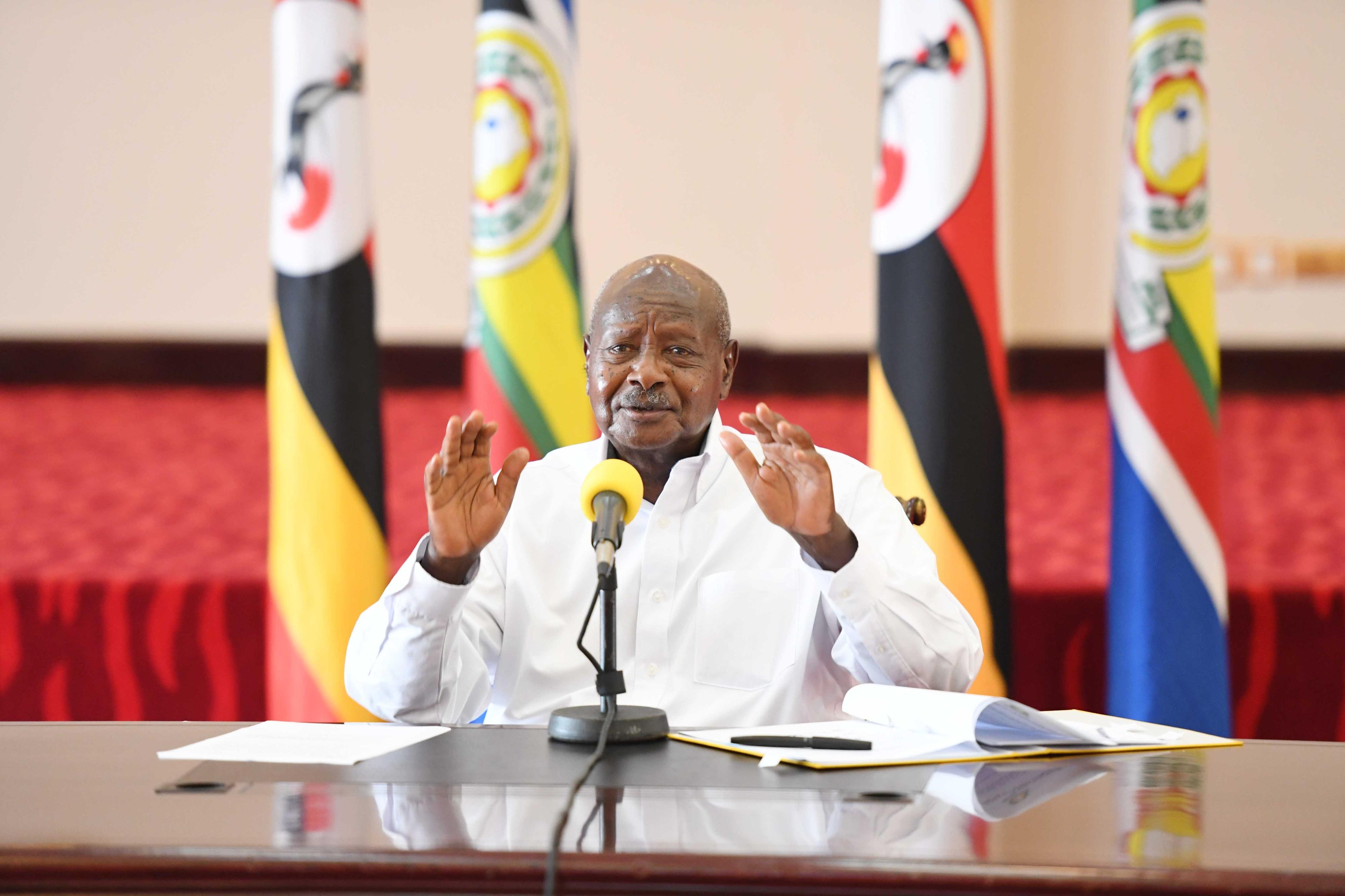President Museveni mourns Archbishop Desmond Tutu
Wednesday December 29 2021

In this file photo taken on April 27, 2019 Archbishop Emeritus and Nobel Laureate Desmond Tutu, attends an exhibition and book launch of notable photographs of his life, which have been turned into paintings, in the centre of Cape Town (AFP)
President Yoweri Museveni has commiserated with the People of South Africa for the loss of the late Archbishop Desmond Tutu.
“On behalf of the Government & people of Uganda & indeed, on my behalf, I wish to convey to you my dear brother Cyril Ramaphosa and through you to the family of the late Archbishop Emeritus Desmond Mpilo Tutu our deepest condolences and sympathies as we mourn our liberation icon,” President Museveni wrote.
Archbishop Emeritus Desmond Mpilo Tutu died on Sunday aged 90. He died of cancer. The man who was described as South Africa’s moral compass was a tireless activist. He won the Nobel Peace Prize in 1984 for combatting white minority rule in his country.

President Yoweri Kaguta Museveni (PPU Photo)
“He will be remembered as one of the greatest and courageous leaders of South Africa, who came face to face with the apartheid regime demanding justice, freedom, and equality for the black people,” says President Museveni.
Desmond Tutu was the first black Archbishop of Cape Town. He attained this seat in 1986 during the apartheid regime in South Africa. He used his position to advocate for international sanctions against apartheid, and later to lobby for rights globally.
However, his activism against the regime started earlier in the 1970s.
His activism continued even after the end of the Apartheid regime. Tutu never shied away from confronting South Africa's shortcomings or injustices.
He headed the Truth and Reconciliation Commission that begins hearings into atrocities committed under the racist apartheid regime in 1996. This was 2 years after the end of apartheid.
A year after the commission took off, he was diagnosed with prostate cancer and would undergo repeated treatment over the following years.
“His contribution to struggles against injustice, racial discrimination, and intolerance led him to the leadership of the “Truth and Reconciliation Commission,” which task he undertook successfully,” President Museveni says.


